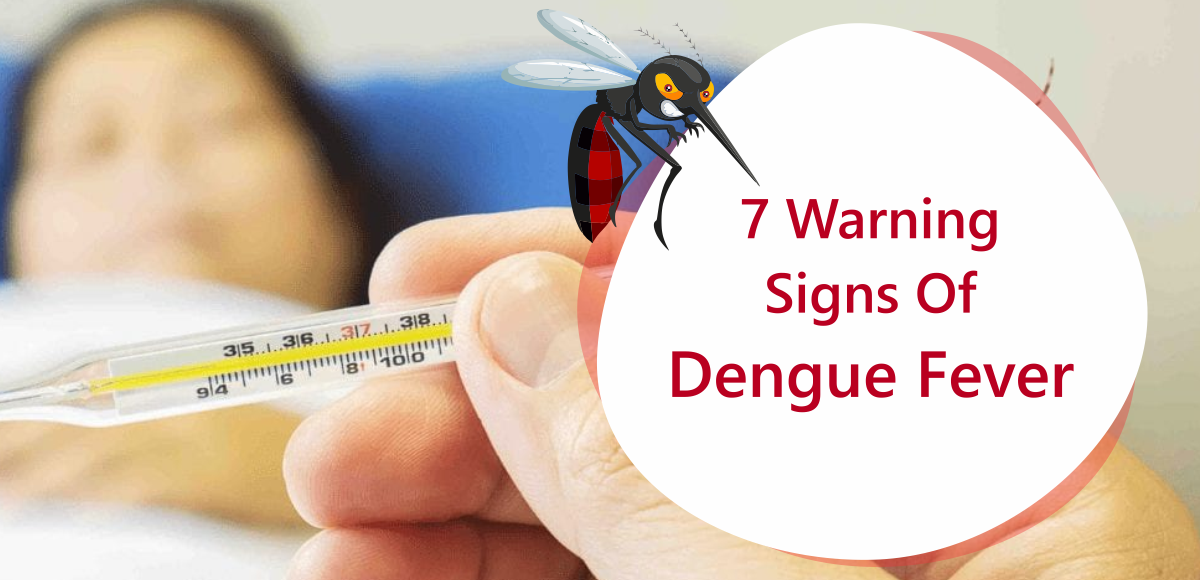Share this Post
7 Warning Signs of Dengue Fever: Recognizing Symptoms for Early Intervention
Dengue fever, a mosquito-borne viral infection, poses a significant health risk in many parts of the world. With its prevalence increasing in tropical and subtropical regions, understanding the warning signs of dengue fever is crucial for early detection and prompt medical intervention. Recognizing these symptoms can help individuals seek appropriate treatment, potentially preventing severe complications. Here are 7 warning signs of Dengue Fever to watch out for:
1. **High Fever:** One of the hallmark symptoms of dengue fever is a sudden onset of high fever, often reaching 104°F (40°C) or higher. This fever typically lasts for two to seven days, accompanied by intense sweating and chills. It’s essential not to overlook fever, especially in areas where dengue is endemic, and to seek medical attention promptly if it persists or worsens.
2. **Severe Headaches:** Dengue fever commonly presents with severe headaches, which can be debilitating for affected individuals. These headaches often manifest behind the eyes and worsen with eye movement. While headaches are a common symptom of many illnesses, when coupled with other warning signs, they could indicate dengue fever and should not be ignored.
3. **Body Aches and Joint Pain:** Another characteristic of dengue fever is the presence of intense muscle and joint pain, often described as aching or throbbing. This pain is typically concentrated in the muscles, joints, and bones, earning dengue the colloquial name “breakbone fever.” If you experience severe body aches, especially in conjunction with other symptoms, it’s essential to consider the possibility of dengue infection.
4. **Rash:** A rash may develop in some cases of dengue fever, typically appearing two to five days after the onset of fever. The rash often begins on the arms, legs, and torso, presenting as small red spots or patches. This rash may spread rapidly and is accompanied by itching. While not all individuals with dengue fever develop a rash, its presence can aid in diagnosis and prompt medical evaluation.
5. **Nausea and Vomiting:** Dengue fever frequently causes gastrointestinal symptoms such as nausea, vomiting, and abdominal pain. These symptoms may contribute to dehydration, particularly in severe cases where fluid loss is significant. It’s crucial to stay hydrated by drinking plenty of fluids and seeking medical attention if vomiting persists or worsens.
6. **Bleeding:** In some cases, dengue fever can lead to bleeding manifestations, ranging from mild to severe. This may include nosebleeds, gum bleeding, or easy bruising. Severe cases of dengue, known as dengue hemorrhagic fever or dengue shock syndrome, can cause internal bleeding, which requires urgent medical intervention. If you notice any signs of bleeding, it’s essential to seek immediate medical attention.
7. **Fatigue and Weakness:** Dengue fever often leaves individuals feeling fatigued and weak, even after the fever subsides. This persistent exhaustion can interfere with daily activities and may take several weeks to resolve completely. While fatigue is a common symptom of many illnesses, its presence alongside other warning signs should prompt consideration of dengue fever as a potential cause.
It’s important to note that not everyone infected with the dengue virus will experience all of these symptoms, and their severity can vary from person to person. Additionally, some individuals, particularly children and those with mild cases, may exhibit few or no warning signs. However, if you experience any combination of these symptoms, especially in regions where dengue is prevalent, it’s essential to seek medical evaluation promptly.
Early detection and appropriate medical care are crucial in managing dengue fever and reducing the risk of complications. While there is currently no specific antiviral treatment for dengue, supportive care, such as hydration and pain management, can help alleviate symptoms and prevent complications. In severe cases, hospitalization may be necessary to monitor for complications such as dehydration, bleeding, or organ dysfunction.
Prevention remains the most effective strategy for combating dengue fever. This includes implementing mosquito control measures, such as eliminating standing water where mosquitoes breed, using insect repellents, and wearing protective clothing. Additionally, raising awareness about the warning signs of dengue fever can empower individuals to seek timely medical attention, ultimately reducing the burden of this potentially life-threatening disease.
In conclusion, being aware of the warning signs of dengue fever is essential for early detection and prompt treatment. From high fever and severe headaches to body aches, rash, and bleeding, recognizing these symptoms can facilitate timely medical intervention, potentially preventing severe complications. By staying vigilant and taking preventive measures, we can work together to reduce the impact of dengue fever on communities worldwide.
Feel free to Read Another Article.
